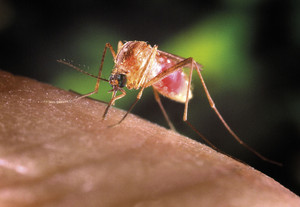
CDC
The Culex quinquefasciatus mosquito, which can transmit the West Nile virusCDCDoctors at the University of Utah studied 457 US athletes and support staff involved in the Rio de Janeiro 2016 Olympic Games, and did not detect any cases of the Zika virus. However, 7% of the individuals (32 cases) tested positive for other arboviruses, which were likely to have been contracted during their stay in the Brazilian city. Blood and serum tests confirmed two cases of dengue, three of chikungunya, and 27 West Nile fever infections (Open Forum Infectious Diseases, October 4). The authors of the study tested Team USA members shortly before and after the Olympic Games. “Those who tested negative pre-travel and positive post-travel may have presented the asymptomatic form of the West Nile virus while in Brazil,” said pediatrician Krow Ampofo, one of the authors of the study. Brazil does not keep systematic records of cases of West Nile fever, a virus that is transmitted to humans primarily by mosquitoes of the Culex genus. The first human case in Brazil was reported in 2014, in the state of Piauí, and the virus is relatively common in the United States. Most people infected remain asymptomatic, but in less than 1% of cases the disease can cause serious neurological problems, such as encephalitis and meningitis, and is potentially fatal. “The result of the study is strange, and there is a lack of proof,” says virologist Maurício Lacerda Nogueira, from the São José do Rio Preto School of Medicine (FAMERP). “But I would not be surprised if there were many more cases of West Nile fever than we imagined.”
Republish
